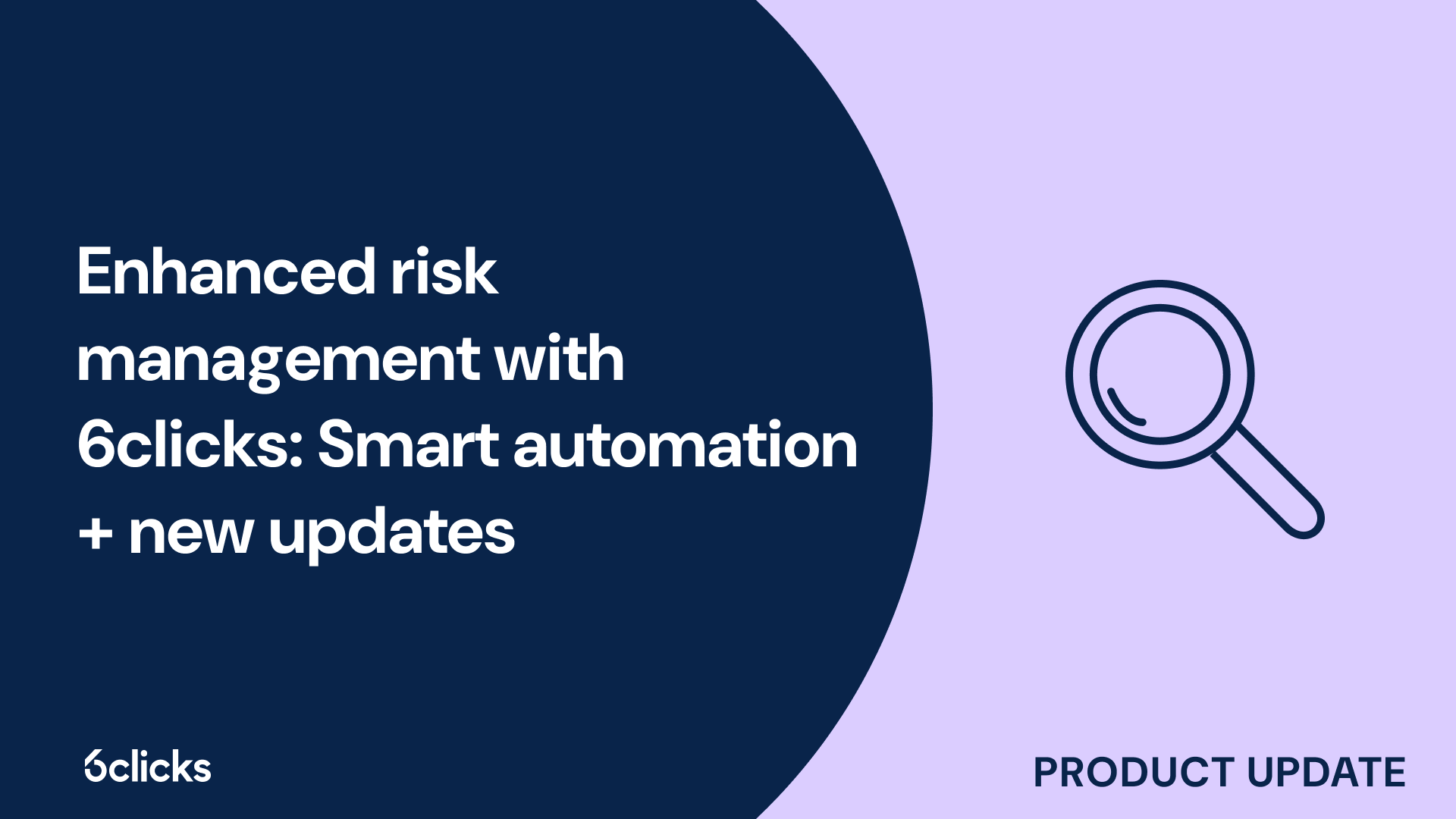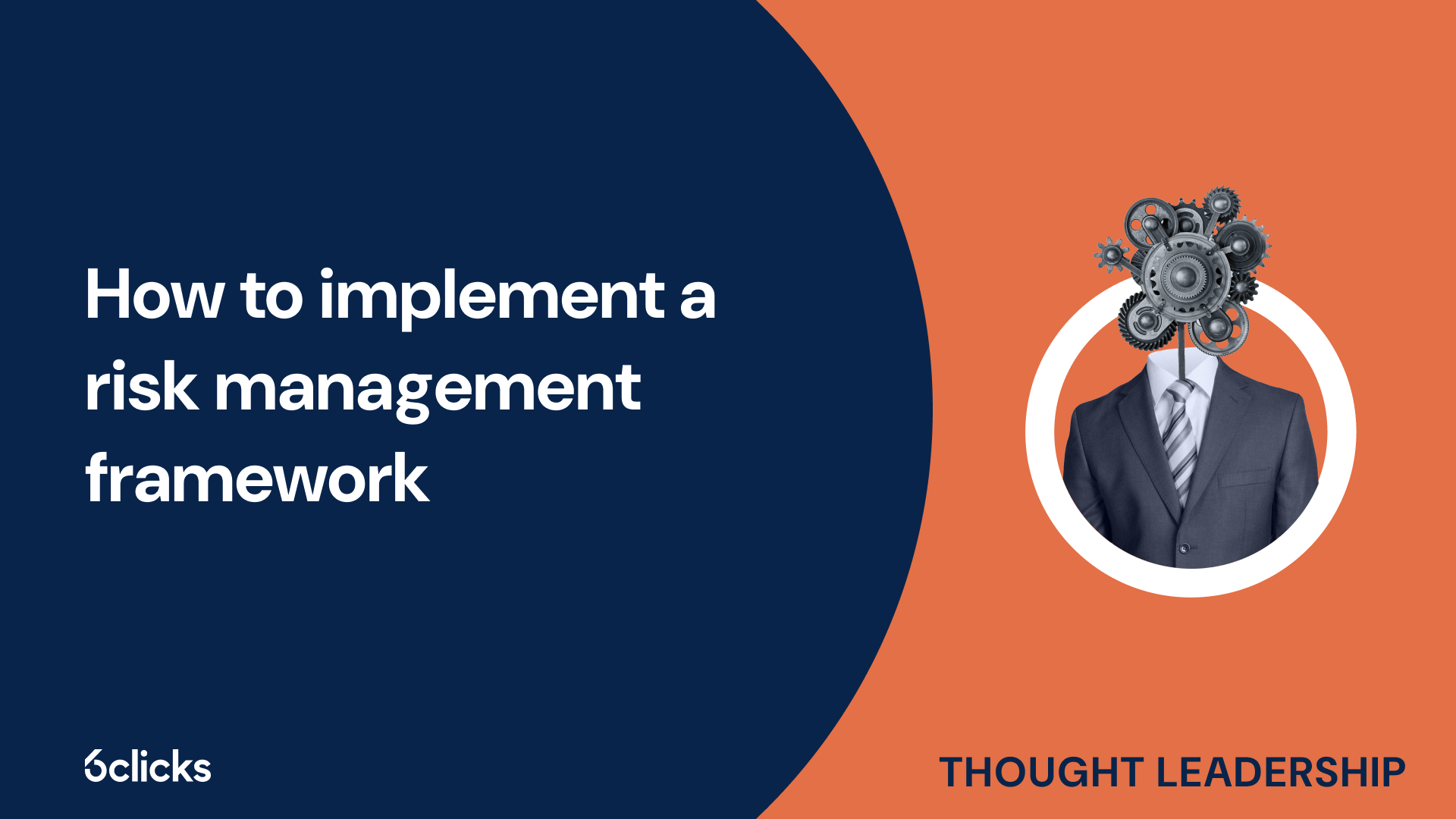The GRC buyer’s guide for 2025: Building resilience with AI-powered, federated solutions
Discover the ultimate GRC buyer's guide for 2025! Uncover how AI-powered, federated solutions transform compliance and security management for industries like government, aerospace, banking, and more. Learn about centralized control, continuous compliance, and advanced cyber GRC capabilities. Download now!
-1.png?width=200&height=249&name=Group%20193%20(1)-1.png)
The GRC buyer’s guide for 2025: Building resilience with AI-powered, federated solutions
What is GDPR?
GDPR, which stands for General Data Protection Regulation, is a comprehensive privacy regulation that was implemented by the European Union (EU) in 2018. It is designed to protect the personal data of EU citizens and residents. The regulation applies to all EU member states and has significant implications for organizations that process the personal data of individuals within the EU. GDPR introduces a range of rights for individuals, such as the right to access their personal data, the right to have their data erased, and the right to be informed about how their data is being used. It also imposes various obligations on organizations, including the requirement to obtain consent for data processing activities, the obligation to implement appropriate security measures, and the need to report data breaches to relevant authorities. The regulation also includes provisions for hefty fines in cases of non-compliance, with penalties reaching up to 4% of a company's annual global turnover.
Does GDPR apply to all countries?
The General Data Protection Regulation (GDPR) is a comprehensive privacy law that applies to all European Union (EU) member states. It sets out rules for the protection of personal data of individuals within the EU and the European Economic Area (EEA).
The territorial scope of the GDPR is broad and covers all EU countries, including Austria, Belgium, Bulgaria, Croatia, Cyprus, Czech Republic, Denmark, Estonia, Finland, France, Germany, Greece, Hungary, Ireland, Italy, Latvia, Lithuania, Luxembourg, Malta, Netherlands, Poland, Portugal, Romania, Slovakia, Slovenia, Spain, and Sweden. In addition to the EU member states, the GDPR also applies to the EEA countries - Iceland, Liechtenstein, and Norway.
It is worth mentioning that the United Kingdom (UK) was an EU member state when the GDPR was introduced. However, after Brexit, the UK formulated its own data protection law, called the UK-GDPR, which is largely similar to the GDPR. This means that the UK-GDPR also applies to the processing of personal data within the UK.
It is important for organizations operating within the EU or handling personal data of EU citizens to ensure compliance with the GDPR or applicable local data protection laws. Failure to comply with the GDPR can result in hefty fines and other legal consequences.
The territorial scope of the GDPR
The territorial scope of the General Data Protection Regulation (GDPR) is broad and extends beyond the borders of the European Union (EU). The GDPR applies to all EU member states as well as the European Economic Area (EEA) countries, including Iceland, Liechtenstein, and Norway. This means that organizations operating within these jurisdictions, or handling the personal data of EU or EEA citizens, must comply with the GDPR or relevant local data protection laws. It is worth noting that even after Brexit, the United Kingdom has its own data protection law, the UK-GDPR, which closely aligns with the GDPR. This signifies that the UK-GDPR also governs the processing of personal data within the UK. Compliance with the GDPR is of utmost importance to avoid potential fines and legal repercussions.
What is the territorial scope of the GDPR?
The territorial scope of the General Data Protection Regulation (GDPR) extends beyond the borders of the European Union (EU). While the GDPR primarily applies to EU member states, it also covers three additional European countries that are part of the European Economic Area (EEA): Iceland, Norway, and Liechtenstein. Furthermore, the GDPR has been incorporated into the national laws of countries such as the United Kingdom, which has its own version known as the UK-GDPR.
Organizations outside the EU can also be subject to the GDPR if they process personal data of EU citizens. This applies regardless of the organization's physical location, as long as it offers goods or services to EU citizens or monitors their behavior. For example, a software company based in South Africa that sells its products to customers in Europe would need to comply with the GDPR in order to protect EU citizens' data.
To ensure the protection of EU citizens' data when transferred outside the EU zone, the GDPR establishes certain safeguards. These can include the use of privacy toolsets, adherence to security measures, and entering into specific contractual clauses with the organizations receiving the data. Additionally, the GDPR permits data transfers to countries with an adequate level of data protection, as determined by the European Commission.
Non-EU companies must comply with the GDPR under specific circumstances, such as offering goods or services to EU citizens or monitoring their behavior online. This applies irrespective of the company's location and is aimed at protecting the privacy rights of EU citizens regardless of where their data is processed.
Does it cover all EU member states?
The General Data Protection Regulation (GDPR) is a comprehensive privacy law that ensures the protection of personal data within the European Union (EU). But does it cover all EU member states? The answer is yes – the GDPR applies to all 27 EU countries.
Additionally, the GDPR extends its coverage beyond the EU member states to include the countries within the European Economic Area (EEA). The EEA consists of Iceland, Liechtenstein, and Norway, ensuring that these countries also adhere to the GDPR's robust data protection regulations.
It is worth noting that the United Kingdom (UK), which officially left the EU on January 31, 2020, follows its own version of the GDPR known as the UK-GDPR. The UK-GDPR largely mirrors the EU GDPR, with minor adjustments to align with the UK's legal framework and national security requirements.
To summarize, the GDPR provides a consistent framework for data protection across all 27 EU member states, as well as the EEA countries. The UK-GDPR ensures a similar level of data protection within the United Kingdom. Collectively, these regulations safeguard the rights and privacy of individuals across a vast geographic area governed by the GDPR framework.
What about other countries?
The territorial scope of the General Data Protection Regulation (GDPR) extends beyond the European Union (EU) and the European Economic Area (EEA). While the GDPR directly applies to all 27 EU countries and the EEA countries of Iceland, Liechtenstein, and Norway, it also has implications for non-EU and non-EEA countries.
Even if a country has not officially adopted the GDPR, its companies are still bound to follow the regulation if they collect personal data from individuals in EU member states. Therefore, non-EU companies that have customers or clients in EU member states are required to comply with the GDPR's robust data protection rules.
Furthermore, it's essential to recognize that the GDPR can apply to countries outside of Europe as well. Specifically, if organizations based in non-EU or non-EEA countries collect personal data from individuals in EU or UK member states, they are subject to the GDPR's provisions and obligations.
This extraterritorial application ensures that individuals' privacy rights are respected and protected, regardless of where the data is processed or stored. It serves as a reminder that the GDPR's reach extends globally, emphasizing the importance of compliance for businesses operating in a digital era characterized by cross-border data flows.
GDPR and non-EU countries
The territorial scope of the General Data Protection Regulation (GDPR) goes beyond the European Union (EU) and the European Economic Area (EEA), extending its reach to non-EU countries as well. This means that even if a country has not officially adopted the GDPR, its companies still need to comply with its provisions if they collect personal data from individuals in EU member states. Similarly, organizations in non-EU or non-EEA countries that collect personal data from individuals in EU or UK member states are also subject to the GDPR's provisions and obligations. This extraterritorial application of the GDPR aims to protect individuals' privacy rights regardless of the location of data processing, highlighting the significance of compliance for businesses in a digitally interconnected world.
Does the GDPR apply to non-EU companies?
Yes, the General Data Protection Regulation (GDPR) does apply to non-EU companies under certain circumstances. According to Article 3.2 of the GDPR, non-EU companies are subject to the regulation if they offer goods or services to EU residents or monitor the online behaviors of EU citizens.
This means that even if a company is not based in the EU, it may still be obligated to comply with the GDPR if it targets customers in the EU market. Offering goods or services to EU residents can include selling products online, providing services, or even having a website that is accessible to EU users.
Additionally, if a non-EU company collects or processes personal data of EU citizens, it may also be subject to the GDPR. This can occur if the company tracks individuals' online behaviors, such as using cookies or other tracking technologies, to gather information about EU citizens.
In order to comply with the GDPR, non-EU companies must ensure that they handle EU citizens' personal data in accordance with the various requirements under the regulation. This can include implementing appropriate security measures, obtaining valid consent for data processing, and fulfilling record-keeping obligations.
It is important for non-EU companies to understand the scope and applicability of the GDPR to avoid potential penalties or legal consequences. Compliance with the regulation demonstrates a commitment to protecting user privacy and can help build trust among EU customers.
What if a company only targets european customers?
If a company exclusively targets European customers, the implications of the General Data Protection Regulation (GDPR) are significant. Despite not being physically located in the European Union (EU), these companies are still subject to the GDPR regulations and must comply with its requirements.
The territorial scope of the GDPR extends beyond the borders of the EU. It applies to companies that process personal data of individuals located in the EU, regardless of the company's geographical location. This means that even if a company is based outside the EU, if it collects or processes personal data of European customers, it must adhere to the GDPR.
Collecting personal data from European customers is a key factor that triggers GDPR applicability. When companies target European customers, such as by providing goods or services online or having a website accessible to EU users, they are engaging in commercial activities that involve the processing of personal data. This places them within the scope of the GDPR and subjects them to its compliance requirements.
To comply with the GDPR, companies targeting European customers must ensure they handle personal data in accordance with its principles. This includes obtaining valid consent for data processing, implementing appropriate security measures, and fulfilling record-keeping obligations. Failure to comply with the GDPR can result in hefty fines, demonstrating the importance of understanding and adhering to these regulations for companies targeting European customers.
How can a business know whether or not it needs to comply with the GDPR?
Determining whether a business needs to comply with the General Data Protection Regulation (GDPR) involves considering several key factors. Firstly, it is important to assess whether the business processes personal data of individuals who are residents of the European Union (EU). Any company that collects, stores, or uses personal data from EU residents is subject to the GDPR, irrespective of its size or location.
Another factor to consider is the size of the business. While the GDPR applies to organizations of all sizes, certain obligations are less stringent for small businesses. For instance, businesses with fewer than 250 employees are exempted from certain record-keeping obligations unless the processing of personal data is likely to pose a risk to individuals' rights and freedom, the processing is not occasional, or if it involves sensitive personal data.
Additionally, determining whether a business needs to comply with the GDPR involves assessing its economic activity. If the business engages in any form of economic activity, such as offering goods or services to EU customers or monitoring the behavior of individuals within the EU, it will fall within the scope of the GDPR.
It is crucial for businesses to thoroughly evaluate these factors to ensure compliance with the GDPR. Failing to comply with the regulation can result in hefty fines and reputational damage. Therefore, businesses that process personal data of EU residents, employ less than 250 employees, and engage in economic activity should take the necessary steps to adhere to the GDPR's requirements and protect individuals' privacy rights.
Compliance requirements for non-EU companies
The GDPR has a broad territorial scope and applies to organizations located outside of the European Union (EU) as well. Non-EU companies are subject to the GDPR if they process personal data of individuals who are located in the EU, provided that the processing activities are related to the offering of goods or services to these individuals or the monitoring of their behavior within the EU. This means that even if a company is based in a non-EU country, it still needs to comply with the GDPR if it sells products or services to EU customers or tracks their online behaviors. Non-EU companies that fall within the scope of the GDPR are required to adhere to the principles and obligations outlined in the regulation, including obtaining valid consent for data processing, implementing appropriate security measures, and respecting individuals' rights regarding their personal data. Failure to comply with these requirements can result in substantial fines and penalties imposed by EU data protection authorities.
What are the compliance requirements for non-EU companies under the GDPR?
Complying with the European Union's General Data Protection Regulation (GDPR) is not limited to organizations based within the EU. Non-EU companies that process personal data of EU citizens are also subject to the GDPR's compliance requirements.
Non-EU companies must ensure they have a legal basis for processing personal data, such as obtaining explicit consent or fulfilling a contractual obligation. They must also implement appropriate security measures to protect this data from unauthorized access or loss.
In addition, non-EU companies must appoint a data protection officer (DPO) if their processing activities involve large-scale monitoring of individuals or processing sensitive personal data on a regular basis. The DPO acts as a point of contact for data subjects and supervisory authorities, ensuring compliance with data protection regulations.
Record-keeping obligations are also imposed on non-EU companies under the GDPR. They must maintain detailed records of their processing activities, including the categories of personal data processed, the purposes of processing, and the recipients of the data. This information must be made available to supervisory authorities upon request.
Non-EU companies should carefully consider factors such as their target market, the location of their data subjects, and their processing activities to determine their obligations under the GDPR. Compliance with the GDPR is crucial, as non-compliant companies may face hefty fines and reputational damage.
Do non-EU companies need to appoint a data protection officer (DPO)?
Under the General Data Protection Regulation (GDPR), non-EU companies may be required to appoint a Data Protection Officer (DPO) to ensure compliance with data protection regulations. The appointment of a DPO is necessary for certain companies that meet specific criteria.
A non-EU company needs to appoint a DPO if its processing activities involve large-scale monitoring of individuals or if it regularly processes sensitive personal data. The DPO's role is to act as a point of contact for both data subjects and supervisory authorities. They are responsible for overseeing the company's data protection policies and ensuring compliance with the GDPR.
When selecting a DPO, companies should consider several criteria. The DPO should have expertise in data protection laws and practices, understanding the GDPR requirements and its implications for the company. They should also have knowledge of the company's business activities and be able to effectively communicate with both internal and external stakeholders.
To ensure compliance with the DPO appointment requirement under the GDPR, non-EU companies should clearly identify if they fall under the criteria for appointing a DPO. If so, they must officially appoint a suitable candidate and notify the supervisory authority of their appointment. It is important for companies to keep in mind that failing to appoint a DPO when required can result in penalties and legal consequences.
Are there any record-keeping obligations for non-EU companies under the GDPR?
Yes, there are record-keeping obligations for non-EU companies under the General Data Protection Regulation (GDPR). These obligations require companies to maintain records related to the processing of personal data.
Non-EU companies that fall under the scope of the GDPR must keep records of their processing activities. These records should contain information such as the purposes of the processing, the categories of personal data being processed, the recipients of the data, and the retention periods for the data.
Additionally, non-EU companies are required to keep records of any transfers of personal data outside of the EU, including the legal basis for the transfer and the safeguards implemented to protect the data.
Examples of the types of records that need to be kept include data processing agreements, consent forms from data subjects, records of data breaches and their resolutions, and records of any data protection impact assessments carried out.
By maintaining these records, non-EU companies demonstrate their compliance with the GDPR's requirements and ensure effective accountability and transparency in their data processing activities. These records may be subject to review by supervisory authorities in the EU to ensure compliance with the GDPR's principles and obligations.
Privacy regulation beyond the EU borders
Privacy regulation beyond the borders of the European Union (EU) has been significantly impacted by the enactment of the General Data Protection Regulation (GDPR). The GDPR has set a global standard for data protection rules, prompting several countries to adopt similar legislation to safeguard the privacy rights of their citizens.
One example of a country with GDPR-like legislation is South Africa, which implemented the Protection of Personal Information Act (POPIA). This law closely aligns with the principles and requirements of the GDPR, including the protection of personal data, the rights of data subjects, and the obligations placed on organizations that process personal data.
Another example is South Korea, which enacted the Personal Information Protection Act (PIPA). The PIPA shares similarities with the GDPR in terms of defining and protecting personal information, requiring organizations to obtain consent for data processing, and imposing penalties for violations.
Countries adopt GDPR-like data protection laws for a variety of reasons. One significant factor is the extraterritorial nature of the GDPR, which applies to organizations outside the EU that process the personal data of EU citizens. To ensure compliance with the GDPR when conducting business with EU-based organizations or individuals, non-EU countries have implemented similar data protection regulations.
Furthermore, the GDPR's strict rules on the export of personal data have influenced countries to enact their own data export regulations. These rules require organizations to implement adequate safeguards when transferring personal data outside the country, ensuring that the privacy rights of individuals are protected even when their data is transferred internationally.








